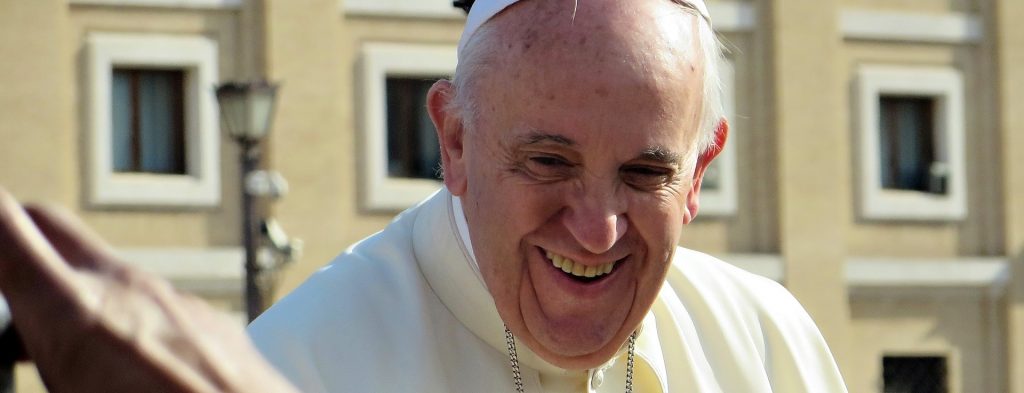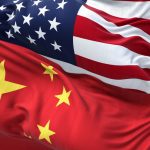Nuclear disarmament and arms control too often are viewed just as security issues, participants argued during a recent Keough School panel discussion. But the ethical questions are too important to be left to security specialists alone—religious voices can and should bring crucial insights to inform nuclear weapons policy.
The conversation, New START: Catholic-Evangelical Dialogue on Nuclear Disarmament, examined the last remaining nuclear weapons agreement between the United States and Russia, which expires in February 2021 unless both sides agree to a five-year extension. The New START treaty, ratified almost a decade ago, limits the number of deployed strategic nuclear weapons to levels far below those of the Cold War.
We are in a race between cooperation and catastrophe, and God’s universe is at stake.
“Yes, these are complex military challenges, but they are also profound moral challenges,” Nuclear Threat Initiative Co-Chair and former Senator Sam Nunn said in his opening remarks. “As I view it, we are in a race between cooperation and catastrophe, and God’s universe is at stake.”
Evangelical Christian and Roman Catholic communities have a long history of advocacy on important global security issues, including nuclear arms control and disarmament, panelists noted. During their discussion, they explored the history of this activism, current efforts to support the extension of New START, and the theological and ethical basis on which communities of faith engage on nuclear issues.
Walter Kim, president of the National Association of Evangelicals (NAE) said Evangelical Christians hold a range of opinions on just war theory, pacifism, and conventional warfare.
“There is a growing consensus, however, that nuclear warfare represents a categorically different threat,” Kim said. “The unique destructive power of nukes raises theological questions.”
In response to theological and ethical concerns over nuclear weapons, the NAE has pursued a two-pronged approach of education and advocacy, Kim said. Following the ratification of the New START treaty, the NAE published a resolution supporting it and calling for further efforts to reduce nuclear arms. A 2019 NAE survey showed that 87 percent of Evangelical leaders supported strengthening international treaties that would limit or reduce nuclear proliferation.
Practical and prudent reduction of nuclear arms is a good, and proliferation puts the flourishing of humanity at risk.
John Hartley, director of the World Evangelical Alliance Global Task Force on Nuclear Weapons and a research scholar at Yale University, acknowledged that despite holding a range of perspectives, Evangelicals ultimately agree that “that practical and prudent reduction of nuclear arms is a good, and that proliferation puts the flourishing of humanity at risk.”
The Catholic Church has a long history of advocating for nuclear disarmament, panelists said. Maryann Cusimano Love, an international relations professor at Catholic University of America, recalled how the church was outraged by the 1945 bombings of Hiroshima and Nagasaki, the latter of which was the geographic center of Catholicism in Japan and Asia at the time.
Our ethical traditions tell us that we need to protect the most vulnerable people first. And that is the basis behind all of our efforts to seek nuclear disarmament.
More recently, Pope Francis has called for significant disarmament efforts, including in 2015 his remarks at the United Nations and in an October 2020 speech, Cusimano Love said. “Our ethical traditions tell us that we need to protect the most vulnerable people first,and that is the basis behind all of our efforts to seek nuclear disarmament,” she added.
Lucas Koach, director of the Office of International Justice and Peace for the United States Conference of Catholic Bishops, added that his organization has a long history of supporting disarmament, in concert with the Holy See.
“With regard to New START, the bishops have sought to consistently raise public awareness—which has been diminishing over the years, regrettably—of the importance of this treaty, and its imminent expiration,” Koach said.
New START’s Expiration Could Prompt Arms Race
Panelists also discussed the risks if New START is not extended. Nunn said failure to renew the treaty would have severe consequences for international security and stability. Loss of comprehensive and on-site verification would decrease transparency and trust between Russia and the United States, create uncertainty, and lead both sides to create more nuclear weapons.
Allowing New START to expire would also undermine longtime work to prevent nuclear proliferation, Nunn said. In the 1968 Non-Proliferation Treaty, non-nuclear countries agreed not to acquire nuclear weapons in exchange for nuclear powers agreeing to make good faith efforts toward disarmament. Failure to renew New START would consequently deliver “a huge blow to the confidence of those countries that do not have nuclear weapons,” he said.
Recently, Catholic and Evangelical Christian communities have pledged to continue their work in support of nuclear disarmament. On August 22, the US Conference of Catholic Bishops and the NAE sent a joint letter to the US Congress supporting the extension of New START and including provisions supporting the treaty in the National Defense Authorization Act. Collaborative efforts such as this, along with individual advocacy and educational measures, could significantly impact nuclear disarmament efforts going forward.
“The US Conference of Catholic Bishops and the National Association of Evangelicals bring an enormously important perspective to conversations about the dangers of nuclear proliferation,” Nunn said, “and the urgency of working toward a world without nuclear weapons.”
This discussion was presented by the University of Notre Dame’s Keough School of Global Affairs and its Kroc Institute for International Peace Studies, in partnership with the following co-sponsors: The Catholic Peacebuilding Network, National Association of Evangelicals, United States Conference of Catholic Bishops’ Office of International Justice and Peace, Nuclear Threat Initiative, World Evangelical Alliance Global Task Force on Disarmament and Nuclear Weapons, Georgetown University’s Berkley Center for Religion, Peace & World Affairs, The Catholic University of America’s Institute for Policy Research, and The Project on Revitalizing Catholic Engagement on Nuclear Disarmament.
A version of this story was originally published on nti.org on October 28, 2020.



